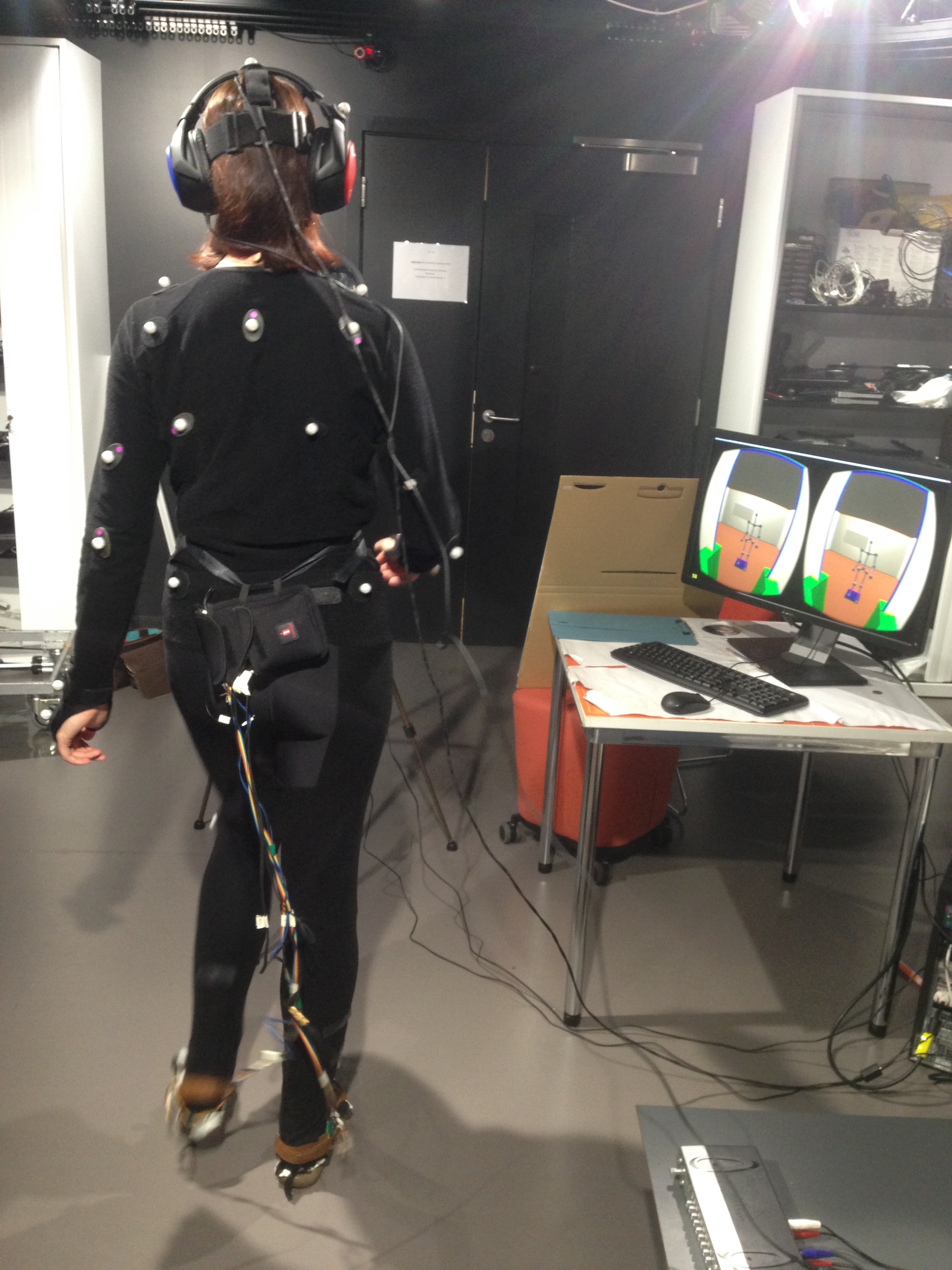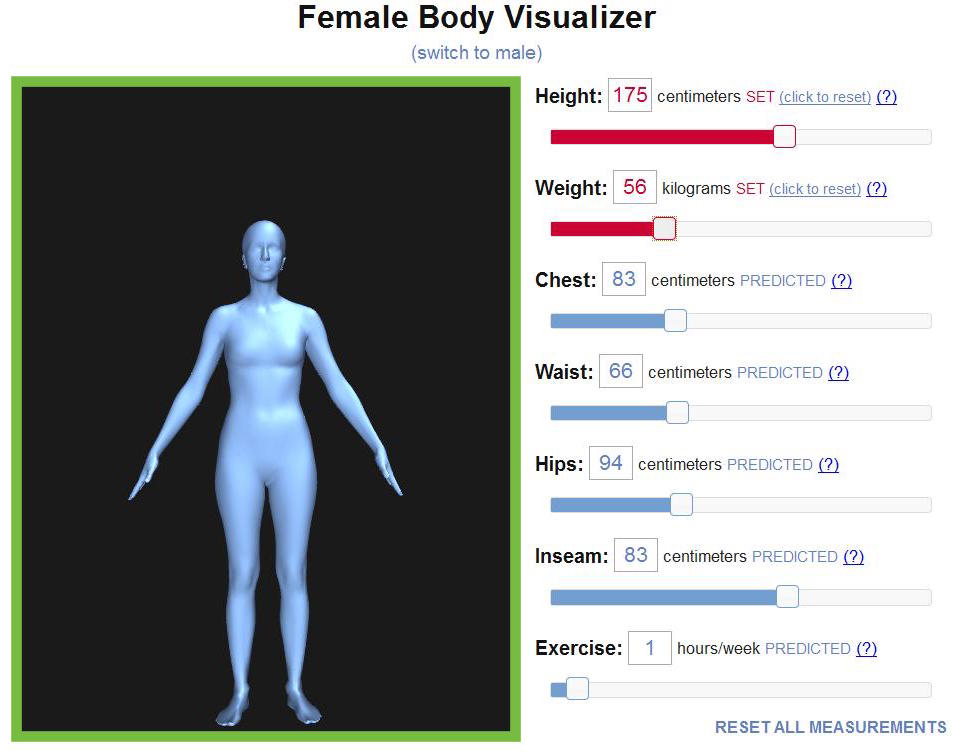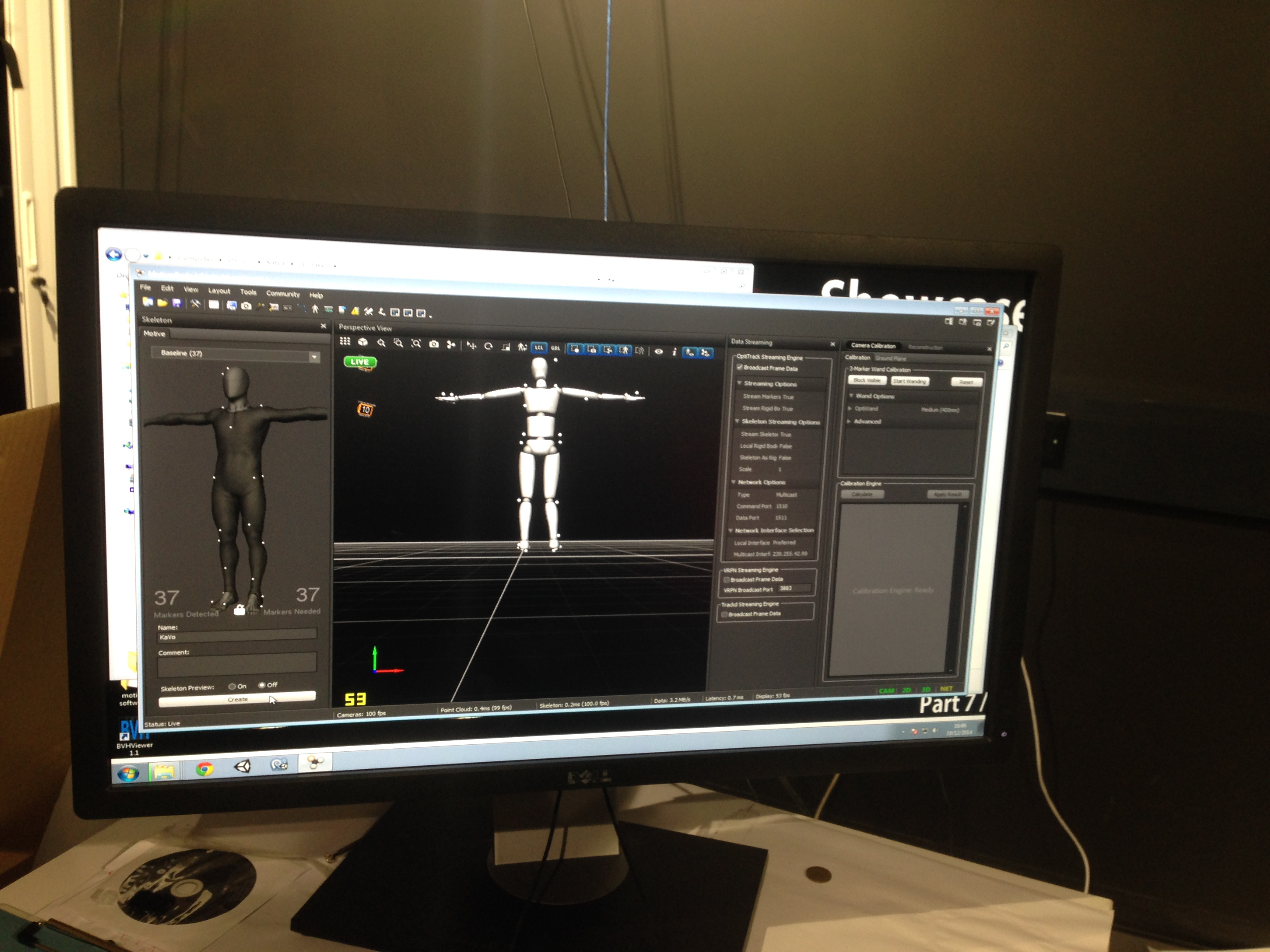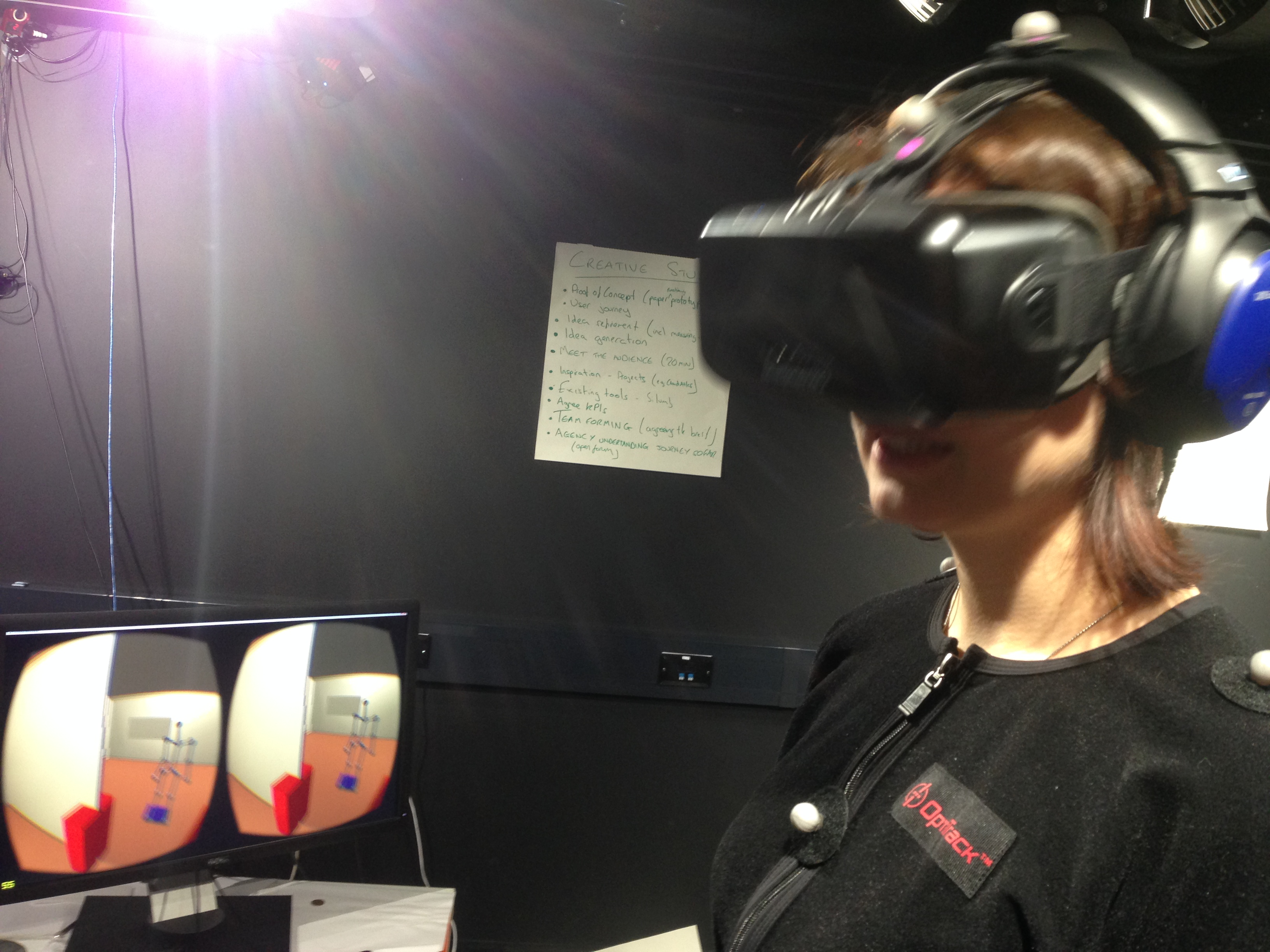Title : Effect of Visual and Auditory Feedback Modulation on Embodiment and Emotional State in VR
Project Lead : Volkova Ekaterina From : Max Planck Institute for Biological Cybernetics (None)
Dates : from 2014-09-18 17:40:36 to 2015-02-09 19:26:41
Description :
Motivation and objectives :
Immersive virtual reality is a perfect medium to study complex human behaviour by simulating an environment close to the real world and yet controlling its properties. In this project we modulate auditory and visual feedback in VR to investigate the impact of the modulation on human behaviour and the emotional state of the participant. The auditory aspect of the feedback modulation consist of changing the sound frequency of the footsteps played back to the user. The visual aspect of the feedback modulation involves changing the gait motion pattern of the self-animated avatar. According to our hypothesis, higher sound frequency of the steps and/or changing human gait towards a happier, more energetic walk will have an effect on the participant's motion trajectories when walking in place in front of a virtual mirror. The reported degree of embodiment of the avatar in the virtual environment, the degree of the illusion of presence, their own body perception and emotional state could, according to our hypothesis, also be influenced by the manipulation. Potentially, this VR setup can be used as a mild positive emotion induction technique. It can be also used as exercise encouragement for people who are otherwise reluctant to do sports.
Teams :
In the Space and Body Perception research group, our aim is to investigate human perception and behavior using ecologically valid and immersive virtual reality (VR). At the same time we consider the implications of our scientific results for improving design specifications for VR software and technology. VR equipment enables our scientists to provide sensory stimulus in a controlled virtual world and to manipulate or alter sensory input that would not be possible in the real world. More specifically, we are able to specifically manipulate the visual body, the contents of the virtual world, and the sensory stimulus (visual, vestibular, kinesthetic, tactile, and auditory) while performing or viewing actions (performed by self or by others). We are mostly interesting in manipulating these features in real-time and are able to do this through fast VR capture and rendering technology. Our group focuses on two specific areas: space and body perception. Space perception is the ability to experience the world in three dimensions and the distances to and between objects in the world. Body perception is the experience we have of our physical selves (and parts of ourselves, i.e. hands, legs, torso). In our research group we focus especially on the perception of the size, shape and form of our surrounding world and our bodies. Further we focus on the interaction between our perception of the spatial attributes of our bodily selves and the spatial perception of the surrounding visual world. Our methods typically involve measuring human performance in complex everyday tasks, i.e. spatial estimates, action execution and recognition (i.e. reaching, walking, communication).
Dates :
starting date : 08 December, 2014
ending date : 19 December, 2014
Facilities descriptions :
http://visionair-browser.g-scop.grenoble-inp.fr/visionair/Browser/Catalogs/REACTOR.UK.html
Recordings & Results :
In this project we modulate auditory and visual feedback in VR to investigate the impact of the modulation on human behaviour and the emotional state of the participant. The auditory aspect of the feedback modulation consists of changing the sound frequency of the footsteps played back to the user. The visual aspect of the feedback modulation involves changing the gait motion pattern of the self-animated avatar. According to our hypothesis, higher sound frequency of the steps and/or changing human gait towards a happier, more energetic walk will have an effect on the participant's motion trajectories when walking in place in front of a virtual mirror. The reported degree of embodiment of the avatar in the virtual environment, the degree of the illusion of presence, their own body perception and emotional state could, according to our hypothesis, also be influenced by the manipulation.
Conclusions :
- Projected successfully integrated with UCL motion capture system (optitrack) - Data collected from 24 participants - Data currently being analysed
Project Images :




Other project resources :
Visionair_report.pdf
video.mov
.

VISIONAIR / Grenoble INP / 46 avenue Felix Viallet / F-38 031 Grenoble cedex 1 / FRANCE
Project funded by the European Commission under grant agreement 262044

Project funded by the European Commission under grant agreement 262044
